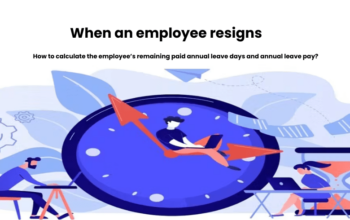According to the Employment Ordinance (EO), all employees, including foreign domestic helpers, irrespective of his length of service or continuous contract, is entitled to the following 13 statutory holidays:
- the first day of January
- Lunar New Year’s Day
- the second day of Lunar New Year
- the third day of Lunar New Year
- Ching Ming Festival
- Labour Day, being the first day of May
- the Birthday of the Buddha (newly added from 2022)*
- Tuen Ng Festival
- Hong Kong Special Administrative Region Establishment Day, being the first day of July
- the day following the Chinese Mid-Autumn Festival
- Chung Yeung Festival
- National Day, being the first day of October
- Chinese Winter Solstice Festival or Christmas Day (at the option of the employer)
However, for some industries, such as the service industry, retail industry, catering industry, etc., if all employees apply for a leave on the statutory holiday, it will have a great impact on the company’s operation. If the employer requires employees to work on statutory holidays, can they make any form of payment to the employee in lieu of granting a holiday, in other words, “buy-out”?
The answer is no! Although according to the EO, the employer can require employees to work on statutory holidays, they must arrange substituted holidays for employees.
If the employer requires the employee to work on a statutory holiday, the employer should make the following arrangement:
- Give employees not less than 48 hours’ prior notice before the statutory holiday
- An alternative holiday should be arranged within 60 days after the statutory holiday
If the employer and employee agree, any day within 30 days before or after the statutory or alternative holiday may be taken by the employee as a substituted holiday. But if a statutory holiday falls on a rest day, the employee should be granted a holiday on the next day which is not a statutory holiday or an alternative holiday or a substituted holiday or a rest day.
Note: According to the EO, an employee employed under a continuous contract is entitled to not less than one rest day in every period of seven days. If a statutory holiday falls on a rest day, the employee should be granted a holiday on the next day of his rest day.
In these cases, it is suggested that the employers should keep clear records of an alternative holiday or a substituted holiday or holiday pay to avoid unnecessary labor disputes. As a one-stop human resource system, Workstem can keep complete employees’ attendance and leave records permanently and can be viewed anytime, anywhere.
Read More: Can an Employer Ask Employees to Work on the Rest Days?







![[418 Guide] Ordinance 418 And Continuous Contract](https://www.workstem.com/wp-content/uploads/2023/08/Untitled-design-min-350x220.png)